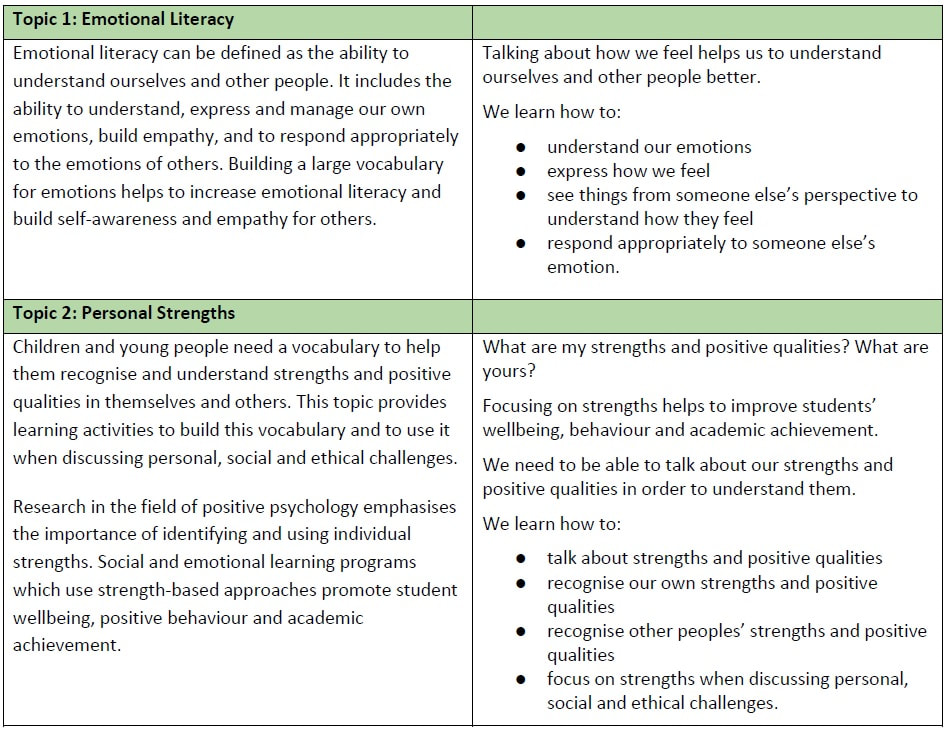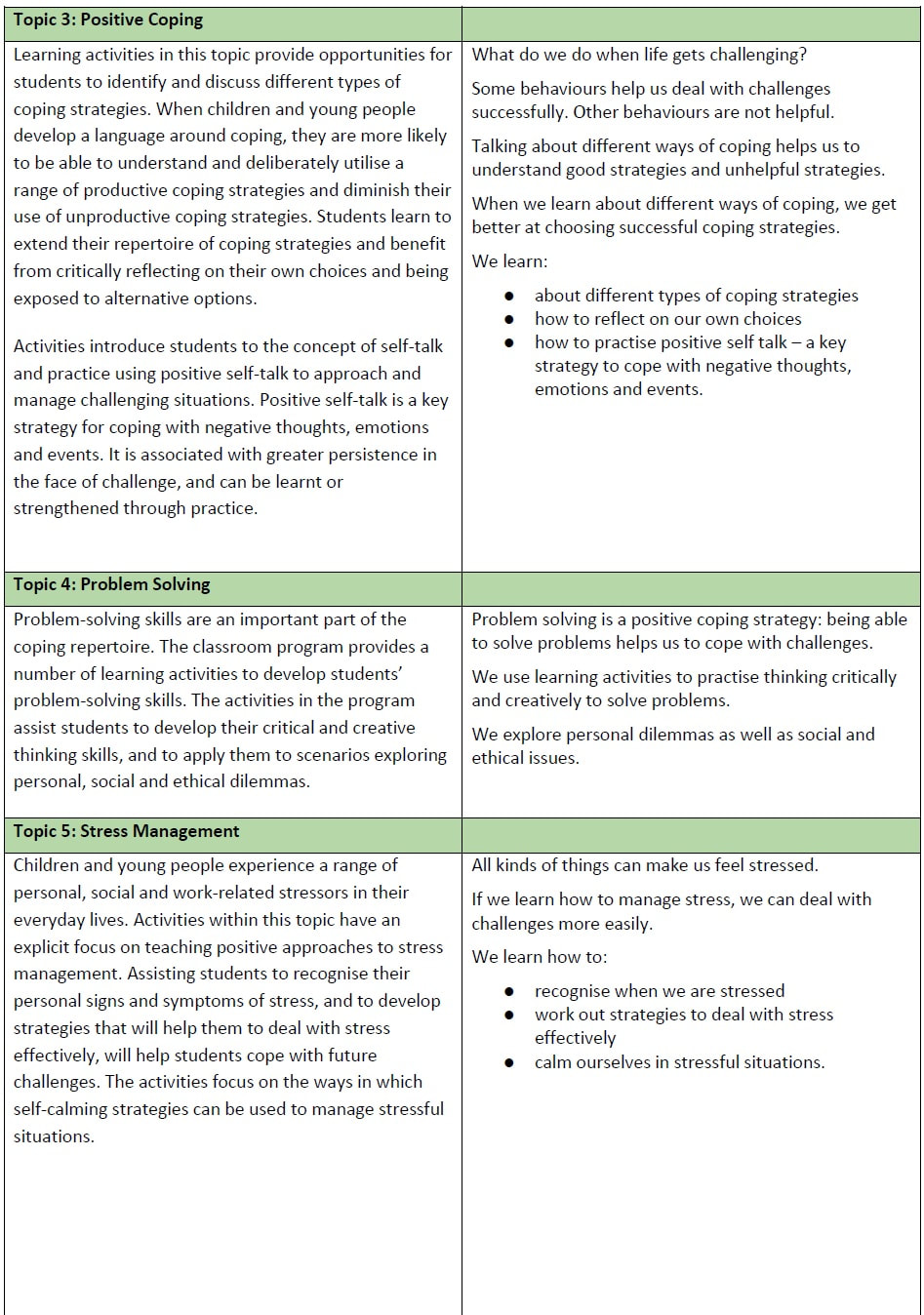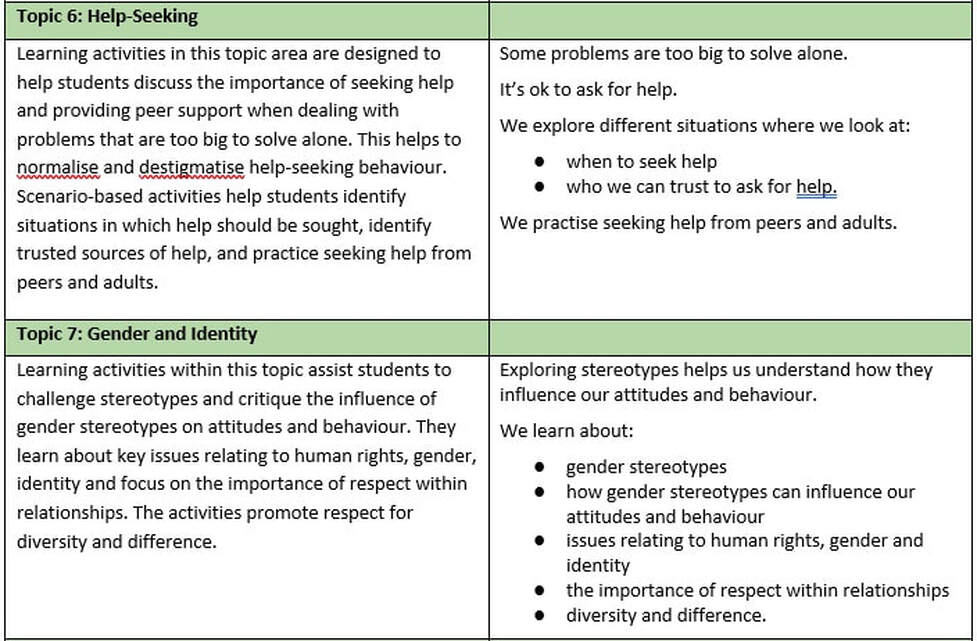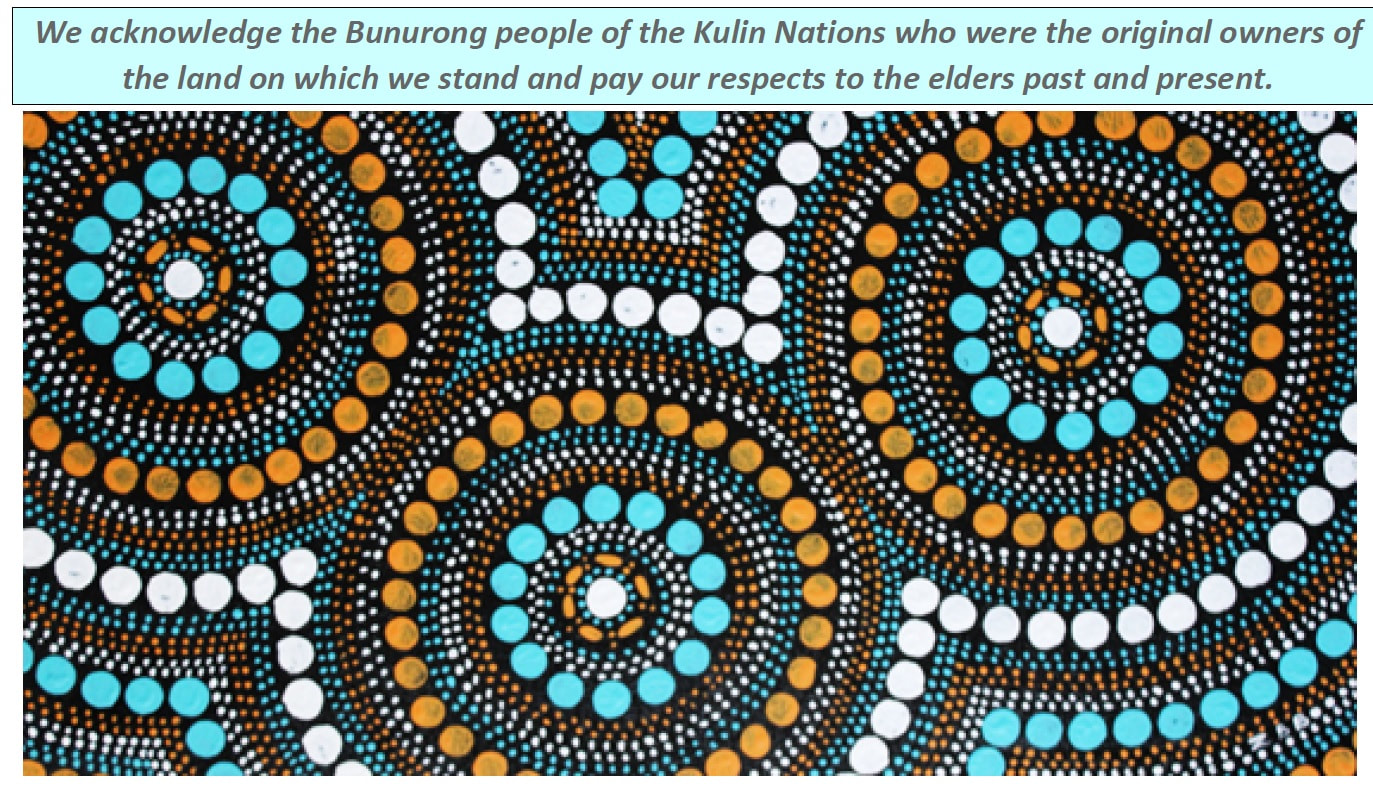At Overport Primary School, we will be implementing the Respectful Relationships Curriculum in 2022. This will involve a weekly lesson taught by classroom teachers.
The Resilience, Rights and Respectful Relationships (RRRR) teaching and learning resources have been developed to support schools to promote and model respect, positive attitudes and behaviours. It teaches our children how to build healthy relationships, resilience and confidence. In the Personal and Social Capability curriculum, students learn to recognise and regulate emotions, develop empathy for others and establish and build a framework for positive relationships.
Schools are places where children learn how to interact with others and work together in a respectful way. Respectful Relationships is a whole-school approach, recognising that schools are a place of learning, a workplace and a key part of local communities. It embeds a culture of respect and equality across our entire school community, from our classrooms to staff rooms, sporting fields and social events. This approach leads to positive impacts on students’ academic outcomes, their mental health, class behaviour, and relationships between teachers and students.
Keep an eye out for more information coming soon, via the newsletter and website.
Click For More Information
The Resilience, Rights and Respectful Relationships (RRRR) teaching and learning resources have been developed to support schools to promote and model respect, positive attitudes and behaviours. It teaches our children how to build healthy relationships, resilience and confidence. In the Personal and Social Capability curriculum, students learn to recognise and regulate emotions, develop empathy for others and establish and build a framework for positive relationships.
Schools are places where children learn how to interact with others and work together in a respectful way. Respectful Relationships is a whole-school approach, recognising that schools are a place of learning, a workplace and a key part of local communities. It embeds a culture of respect and equality across our entire school community, from our classrooms to staff rooms, sporting fields and social events. This approach leads to positive impacts on students’ academic outcomes, their mental health, class behaviour, and relationships between teachers and students.
Keep an eye out for more information coming soon, via the newsletter and website.
Click For More Information








